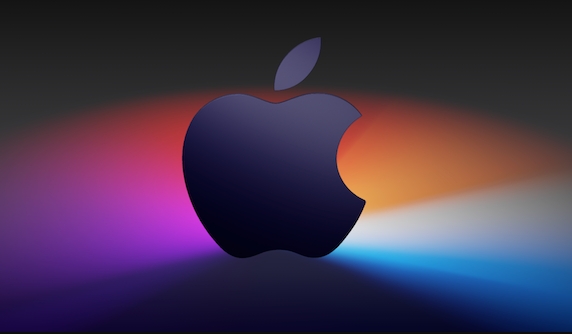To share a Mac screen in FaceTime, start the call first, then click the "Share My Screen" button, select Share the entire screen, a specific window, or a part of the area, and then pause or stop sharing through the top toolbar. The steps are as follows: 1. Start a video or audio call first; 2. Click the "Share My Screen" option on the call interface; 3. Select the sharing range (full screen, window or area); 4. Use the top toolbar to control the sharing status; 5. Stop sharing through the menu bar button or end the call. Make sure to use a newer macOS version and log in to iCloud to support the feature.

Sharing your Mac screen during a FaceTime call is actually pretty straightforward, but it's not always obvious how to do it if you've never done it before. The feature is built right into macOS, so you don't need any third-party tools — just a few taps in the right place.

Start a FaceTime call first
You can't share your screen unless the call is already in progress. So start a video or audio call with the person you want to share with. Once they're on the line, you're ready for the next step.
Tap the "Share My Screen" button
While on the call, look for the screen sharing option:

- In the FaceTime window, move your mouse to reveal the controls (if they're hidden).
- Click the arrow ▼ next to the mute or camera button.
- You'll see an option labeled “Share My Screen” — click that.
FaceTime will ask whether you want to share your entire screen, a specific window, or a portion of the screen. Choose what works best for your situation:
- Sharing the whole screen is good for walkthroughs or general demos.
- Choosing a specific window keeps things focused and avoids showing unrelated parts of your desktop.
- Selecting a portion lets you highlight a particular area without giving full visibility.
Once you've made your selection, click “Share” and your screen will begin streaming live to the other person.

Control what's show — and when to stop
While sharing, there's a small toolbar at the top of your screen that lets you:
- Pause sharing
- Switch to a different window or area
- Stop sharing entirely
It's easy to forget you're broadcasting, so be mindful of switching apps or opening files during the session. If you want to temporarily hide what you're doing, just click “Pause Broadcast” from the menu bar.
Also, if you end the FaceTime call, screen sharing stops automatically. But if you just want to stop sharing and keep talking, click the green stop button in the menu bar or go back into the FaceTime controls and tap “Stop Sharing.”
Keep in mind that screen sharing works best on newer versions of macOS — think Big Sur and up. If you're having trouble finding the option, make sure your system is updated and that both devices are signed into iCloud with Apple IDs.
Basically that's it. It's not complicated once you know where to look, but it's easy to miss the exact steps if you're guessing around the interface.
The above is the detailed content of How to share Mac screen on FaceTime. For more information, please follow other related articles on the PHP Chinese website!

Hot AI Tools

Undress AI Tool
Undress images for free

Undresser.AI Undress
AI-powered app for creating realistic nude photos

AI Clothes Remover
Online AI tool for removing clothes from photos.

Clothoff.io
AI clothes remover

Video Face Swap
Swap faces in any video effortlessly with our completely free AI face swap tool!

Hot Article

Hot Tools

Notepad++7.3.1
Easy-to-use and free code editor

SublimeText3 Chinese version
Chinese version, very easy to use

Zend Studio 13.0.1
Powerful PHP integrated development environment

Dreamweaver CS6
Visual web development tools

SublimeText3 Mac version
God-level code editing software (SublimeText3)

Hot Topics
 Can I Show the Dock on All Screens on Mac? Using Dock on Different Displays in macOS
Jul 03, 2025 am 09:30 AM
Can I Show the Dock on All Screens on Mac? Using Dock on Different Displays in macOS
Jul 03, 2025 am 09:30 AM
If you're using a Mac with multiple monitors, you might be curious about how to display the Dock on all screens or whether it's possible to add a Dock to secondary displays.The good news is that you can configure the Dock to appear on any screen conn
 How to Remove Old Devices from Apple ID on Mac
Jul 07, 2025 am 09:08 AM
How to Remove Old Devices from Apple ID on Mac
Jul 07, 2025 am 09:08 AM
If you've owned multiple Apple devices over the years, you might find yourself in a situation where some of those older Macs, iPhones, iPads, or other Apple hardware have been sold, given away, or traded. No matter how they left your possession, it's
 How to Play Fortnite on Mac with FnMacAssistant & Sideloadly
Jul 05, 2025 am 09:21 AM
How to Play Fortnite on Mac with FnMacAssistant & Sideloadly
Jul 05, 2025 am 09:21 AM
Fortnite is once again available for iPhone and iPad users, bringing joy to many gamers. However, there's still no official version for Mac (at least not yet). Despite that, Apple Silicon Mac owners aren’t completely out of luck—you can run the iOS/i
 How to Enable iCloud Private Relay on Mac
Jul 05, 2025 am 09:36 AM
How to Enable iCloud Private Relay on Mac
Jul 05, 2025 am 09:36 AM
iCloud Private Relay is an excellent privacy feature included with the iCloud subscription, designed to safeguard your online activity and browsing by masking your IP address (using a temporary one) and encrypting DNS lookups. This prevents third pa
 How to Allow Apps During Downtime on Mac
Jul 04, 2025 am 09:03 AM
How to Allow Apps During Downtime on Mac
Jul 04, 2025 am 09:03 AM
Are you using Screen Time to manage your or your child’s Mac usage? If yes, you likely already know that it allows you to set app limits, schedule downtime on the Mac, and more. Additionally, you can also choose specific apps that remain accessible a
 How to Make MacOS Sequoia Feel Faster: Tips to Speed Up Slow MacOS
Jul 05, 2025 am 09:28 AM
How to Make MacOS Sequoia Feel Faster: Tips to Speed Up Slow MacOS
Jul 05, 2025 am 09:28 AM
macOS Sequoia is a solid operating system that brings some impressive features like iPhone Mirroring, and while performance is excellent for many users, not everyone experiences the same level of speed. If you're finding macOS Sequoia slower than pre
 How to See All Links Shared in Messages on iPhone & iPad
Jul 05, 2025 am 09:31 AM
How to See All Links Shared in Messages on iPhone & iPad
Jul 05, 2025 am 09:31 AM
If you frequently use iMessage, then you've likely shared numerous web links in your chats — maybe an article, a video, a tweet, a song, or anything else. Locating these links later can be quite frustrating, but thankfully there's a simpler method th
 Create a MacOS Tahoe 26 Beta VM with Three Commands in Terminal Using tart
Jul 06, 2025 am 09:28 AM
Create a MacOS Tahoe 26 Beta VM with Three Commands in Terminal Using tart
Jul 06, 2025 am 09:28 AM
Advanced Mac users familiar with the command line can swiftly set up a MacOS Tahoe 26 beta virtual machine by entering a few commands into Terminal, using tart. Tart is a command-line utility for managing virtual machines and offers one of the quicke






